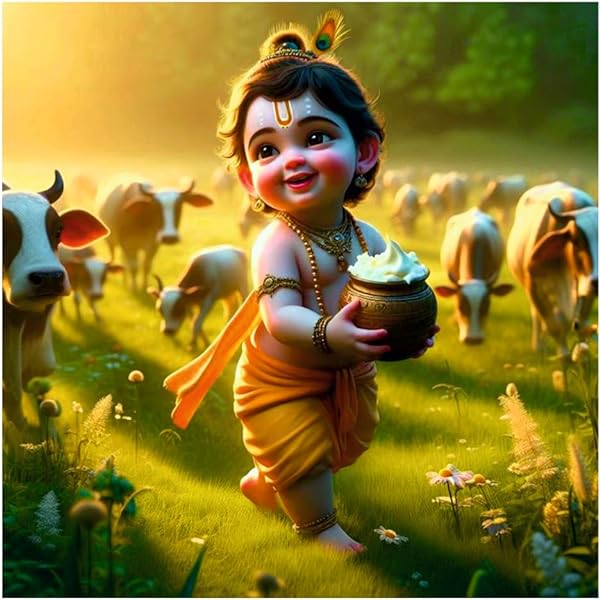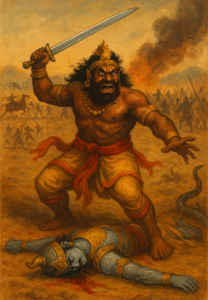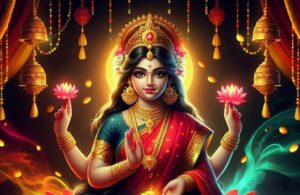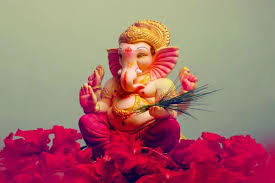Introduction: The Divine Night of Krishna Janmashtami
Krishna Janmashtami, the joyous celebration of Lord Krishna’s birth, is one of the most revered festivals in Hinduism. It is a night filled with devotion, fasting, and vibrant rituals that honor the arrival of the divine child. One unique tradition observed by many Hindus is staying awake throughout the night. But why do some Hindus choose not to sleep on Krishna Janmashtami? This blog explores the spiritual significance and cultural practices behind this tradition, shedding light on its deeper meaning.

The Historical Background of Krishna Janmashtami
1. The Birth of Lord Krishna
The origins of Krishna Janmashtami date back thousands of years and are deeply rooted in Hindu mythology. According to sacred texts like the Mahabharata and the Bhagavata Purana, Lord Krishna was born to Devaki and Vasudeva in a prison cell in Mathura during a time of great turmoil. His uncle, King Kamsa, had been warned by a celestial prophecy that Devaki’s eighth son would be his doom. In a bid to thwart this prophecy, Kamsa imprisoned Devaki and killed her first six children.
On a stormy night, when Lord Krishna was born, miraculous events unfolded: the prison guards fell asleep, allowing Vasudeva to escape with his newborn son across the turbulent Yamuna River to Gokul. There, Krishna was raised by Yashoda and Nanda, who became his foster parents. This dramatic escape and subsequent upbringing set the stage for many of Krishna’s legendary exploits.

2. The Evolution of Celebrations
Initially celebrated in Gokul, the festival gradually spread to Mathura and eventually throughout India. Over time, it evolved into a grand occasion marked by various rituals and festivities that celebrate not only Krishna’s birth but also his life and teachings. The essence of these celebrations lies in bringing communities together to reflect on themes of love, faith, and righteousness.
Why Do Some Hindus Stay Awake on Krishna Janmashtami?
1. Honoring Lord Krishna’s Birth at Midnight
The most significant moment of Krishna Janmashtami occurs at midnight, believed to be the exact time when Lord Krishna was born. Staying awake symbolizes devotion and readiness to welcome him into their lives. Devotees perform Nishita Puja, chant mantras, and sing bhajans during this sacred hour to celebrate his divine arrival.
2. Spiritual Vigilance and Connection
Remaining awake is seen as a form of spiritual discipline. It reflects a devotee’s commitment to staying alert and focused on their prayers, fostering a deeper connection with Lord Krishna’s divine energy. This vigil is also symbolic of overcoming ignorance and embracing enlightenment, much like Lord Krishna’s teachings.
3. Participating in Rituals and Celebrations
The night of Janmashtami is filled with activities that keep devotees engaged in worship and celebration:
- Chanting Bhajans: Singing devotional songs glorifying Lord Krishna.
- Reading Scriptures: Reciting stories from the Bhagavad Gita or Bhagavata Purana.
- Offering Prasad: Preparing sweets and milk-based dishes to offer to Lord Krishna after midnight puja.

Customs and Rituals of Krishna Janmashtami
1. Fasting as an Act of Devotion
Fasting is an integral part of Janmashtami celebrations, symbolizing purity and self-control. Many devotees observe a strict fast (Nirjal fast) without food or water, while others consume only milk-based products like butter or curd—foods loved by Lord Krishna.
2. Midnight Puja: The Sacred Moment
At midnight, devotees perform elaborate rituals known as Nishita Puja. The idol of baby Krishna is bathed in milk, dressed in new clothes, adorned with jewelry, and placed in a cradle amidst joyous chants of “Hare Krishna” or “Om Namo Bhagavate Vasudevaya.”
3. Regional Variations in Celebration
Different regions celebrate Janmashtami uniquely:
- In Mathura (Lord Krishna’s birthplace), temples host grand reenactments of his childhood stories through dance dramas called Rasa Lila.
- In Gujarat, women often play games while fasting as part of their cultural tradition.
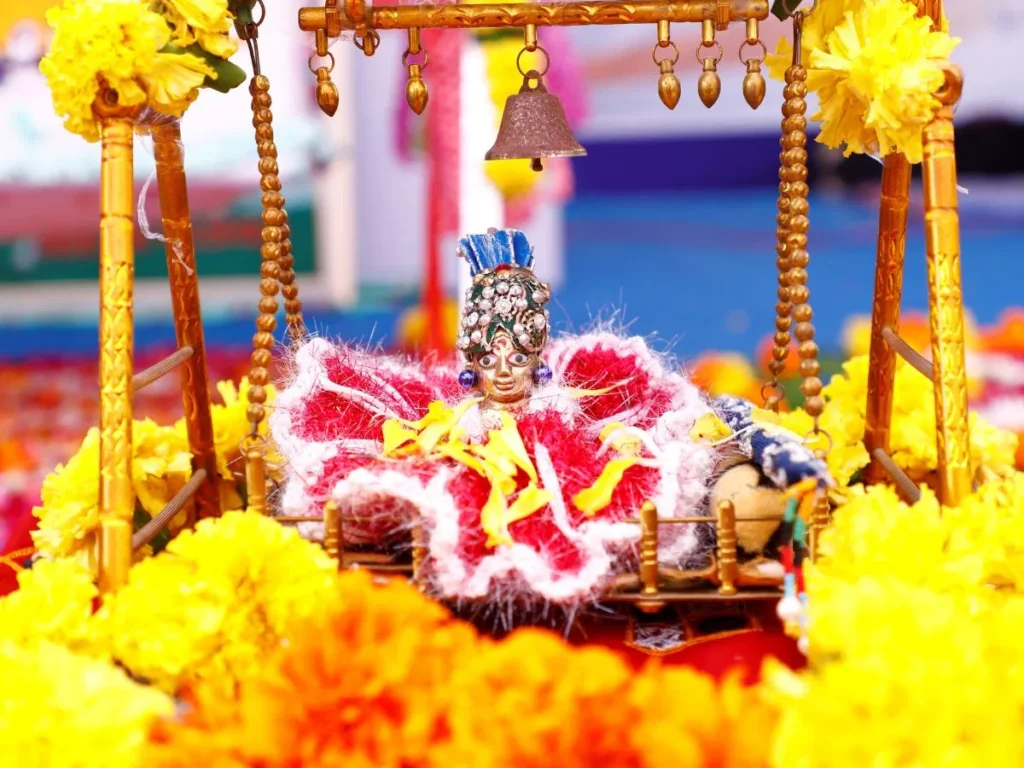
The Symbolism Behind Staying Awake
1. A Night of Devotion
Staying awake represents unwavering dedication to Lord Krishna. It signifies overcoming physical fatigue to immerse oneself in spiritual practices that honor his teachings.
2. Spiritual Awakening
The act of staying awake also symbolizes spiritual awakening—remaining alert to receive divine blessings and wisdom from Lord Krishna.
FAQs
Q1: Why do Hindus stay awake on Krishna Janmashtami?
Hindus stay awake to honor Lord Krishna’s birth at midnight through prayers, chanting, and rituals that deepen their spiritual connection.
Q2: What rituals are performed during the midnight celebrations?
At midnight, devotees perform Nishita Puja by bathing baby Krishna’s idol, offering sweets and milk products, singing bhajans, and chanting mantras.
Q3: Is fasting mandatory during Janmashtami?
Fasting is not mandatory but widely practiced as an act of devotion. Devotees may choose a full fast (Nirjal) or consume only milk-based foods.
Q4: How do different regions celebrate Janmashtami?
Celebrations vary across regions—Mathura hosts grand Rasa Lila performances while Gujarat incorporates traditional games into the festivities.
Conclusion: A Night of Divine Celebration
Krishna Janmashtami is more than just a festival; it is an opportunity for devotees to immerse themselves in spirituality and devotion. The tradition of staying awake reflects unwavering faith and readiness to welcome Lord Krishna into their lives at the sacred hour of his birth. Whether through fasting, chanting bhajans, or performing rituals, every act during this night carries profound meaning. As you celebrate this divine occasion, embrace its traditions to connect deeply with the teachings and blessings of Lord Krishna.

